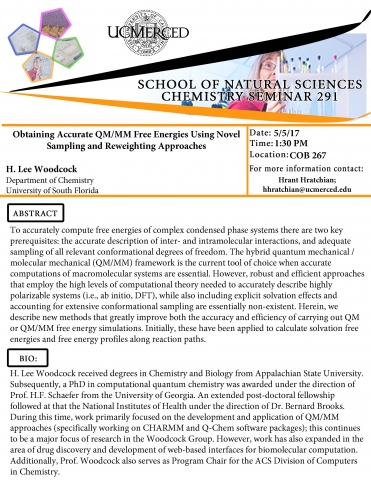H. Lee Woodcock, University of South Florida
Abstract:
To accurately compute free energies of complex condensed phase systems there are two key prerequisites: the accurate description of inter- and intramolecular interactions, and adequate sampling of all relevant conformational degrees of freedom. The hybrid quantum mechanical / molecular mechanical (QM/MM) framework is the current tool of choice when accurate computations of macromolecular systems are essential. However, robust and efficient approaches that employ the high levels of computational theory needed to accurately describe highly polarizable systems (i.e., ab initio, DFT), while also including explicit solvation effects and accounting for extensive conformational sampling are essentially non-existent. Herein, we describe new methods that greatly improve both the accuracy and efficiency of carrying out QM or QM/MM free energy simulations. Initially, these have been applied to calculate solvation free energies and free energy profiles along reaction paths.




